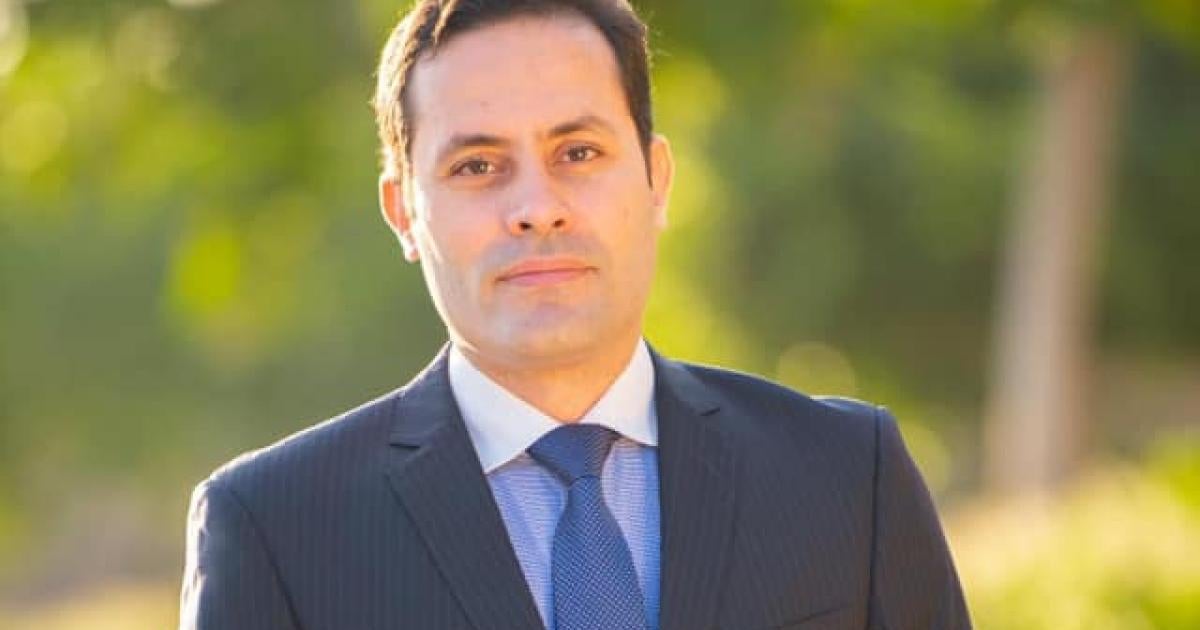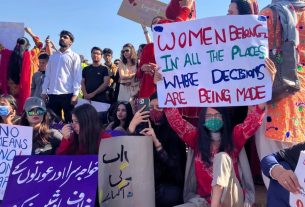(Beirut) – Egyptian authorities imprisoned a prominent political opposition leader, Ahmed Tantawy, on May 27, after an appeals court upheld a one-year sentence against him and nearly two dozen of his supporters, Human Rights Watch said today. Tantawy was detained inside the courthouse after the appeal decision was handed down.
The court also confirmed the decision to bar Tantawy from running in national elections for five years. On February 6, an Egyptian court sentenced Tantawy along with his campaign adviser, Mohammad Abu al-Dyar, and 21 of his detained supporters to one year in prison in relation to his peaceful campaign to collect public endorsements to run for president. Tantawy and his campaign adviser had been released on a bail of 20,000 Egyptian pounds (about US$648) during the appeal.
“Punishing Tantawy and his supporters for challenging president Abdel Fattah al-Sisi reveals once again the authorities’ zero tolerance toward peaceful activism,” said Adam Coogle, deputy Middle East and North Africa director at Human Rights Watch. “Egyptian authorities at the highest levels should immediately review the case against Tantawy and release him and his supporters.”
The authorities have not revealed Tantawy’s immediate whereabouts, a source with knowledge of the case told Human Rights Watch. The source said that on May 30, the family learned that he is in the 10th of Ramadan prison, in al-Sharqia governorate, east of Cairo. Abu al-Dyar, who was sentenced in absentia, had a retrial on June 3 and was arrested inside a courtroom on June 3 as judges confirmed his prison sentence.
The court ruling is entirely based on Tantawy’s peaceful political activism and the efforts of Tantawy’s campaign to collect support statements before the December 2023 presidential election, in which president Sisi won a third six-year term with 89.6 percent of the noncompetitive vote. Tantawy and his supporters were charged with printing and distributing unofficial support statements. These charges stem from calls made on October 8 by Tantawy’s campaign urging supporters to complete unofficial endorsement forms online to prove the extent of Tantawy’s support across the country, which authorities then construed as an electoral offense.
Human Rights Watch documented dozens of unlawful arrests, intimidation, and prosecutions against potential candidates and their supporters before the election, all of which effectively prevented any meaningful competition. The Egyptian authorities detained and prosecuted dozens of family members as well as perceived or actual supporters of Tantawy starting in March 2023, after he announced that he planned to run for president.
Law No. 45 of 2014 on the Regulation of the Exercise of Political Rights provides for a minimum of one year in prison and/or a fine of 1,000 to 5,000 Egyptian pounds (about US$32 to $162) for “printing or distributing, in any way, election ballots or documents used in the electoral process” without authorization. Using this article to restrict the ability of activists to collect support statements or endorsements in the context of a political campaign is incompatible with the rights to freedom of expression and association under international human rights law, Human Rights Watch said.
All those arrested without credible evidence of a recognizable offense should be immediately and unconditionally released, Human Rights Watch said.
“Prison sentences aimed at deterring peaceful dissent constitute a critical part of Egypt’s systematic repression of political activists and peaceful critics,” Coogle said.


